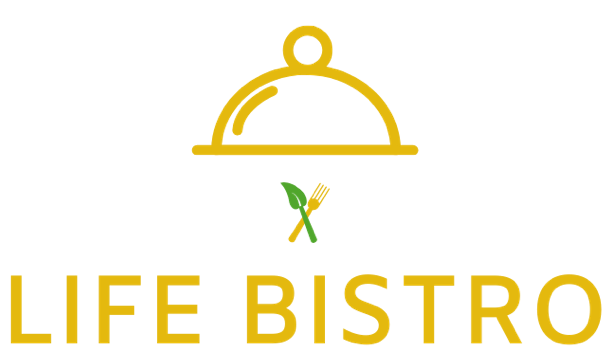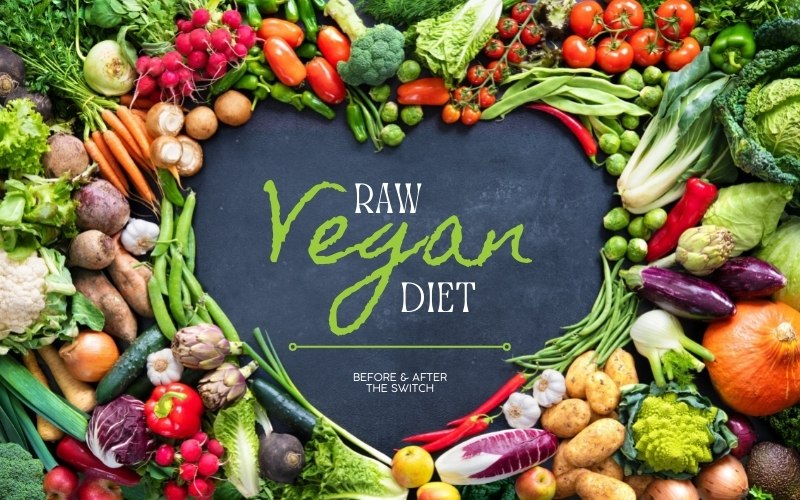Veganism is consistently gaining traction in the United States of America. Research has found that plant-based diets have become more and more prominent in the past 15 years with over 9.6 million people adopting the lifestyle change which, to some, involves abstaining from animal products. The numbers show a 300% increase in vegans or vegetarians over the past decade. This has been highly attributed to new food options such as plant-based meat products like those from Beyond which provide savory ways for vegans to enjoy sustainable products. Big names and celebrities like Beyonce have also revealed their consumption of plant-based diets.
This cultural shift has made for all kinds of variations of veganism. One type of vegan diet that is also gaining popularity is that of raw vegan diets. Here we will look into what a raw vegan diet is and all the before-and-after benefits and risks.
What is a Raw Vegan Diet?

Before diving into what a raw vegan diet is you might also need to know what a vegan diet is. This type of living includes only plant-based food, avoiding all animal products like meat, fish, chicken, and the like. Eggs and other byproducts from animals are included on this list. Raw vegan diets narrow this all down even further.
Raw vegan diets only pertain to unprocessed food that is not meant to be cooked. The aim here is to eat food as it has come from the earth, in an organic state. Heating can change food too much.
There are a variety of ways to prepare food that does not include heating it. These are: blending, juicing, soaking, drying up, and sprouting. Do not forget about simply eating the food as it is— a fairly easy solution as well. While some vegans choose an all-raw diet, others choose to consume mainly raw food while also incorporating some cooked meals to add variety.
Types of Raw Food Diets
Among the raw food diets, there are many options aside from the purely vegan one. Here are the three main types:
- Raw vegan diet. You can only eat raw, plant-based food.
- Raw vegetarian diet. This is very similar to other vegetarian diets which do not include meat, chicken, and fish but do include dairy and eggs. Since processed or heated food is not part of a raw vegetarian diet dishes like scrambled eggs cannot be eaten in this diet.
- Raw omnivorous diet. The opposite of veganism, all types of food except for cooked or processed food can be eaten here.
Why Do People Go For Raw Vegan Diets?
People who go on vegan diets, in general, have different reasons for living in this way. They might see ethical issues with animal products or maybe it is part of their religion to eat in a certain way. Health reasons also come into play here. Whatever it is, raw vegan diets include several health benefits that can be very inviting to vegans and omnivores alike.
What are the Advantages of Raw Vegan Diets?
Raw produce can include lots of vitamins and minerals. We all know that veggies are good for us and that translates well into raw vegan diets. The very first people on the planet relied on produce to get the nutrients they needed. Secondly, phytochemicals which are the plant compounds found in raw vegan food can possibly fight cancer and many other health problems. Lastly, raw vegan diets can aid in your fitness or health journey since it usually does not contain the same amount of calories that the processes of heating and processing put into food.
Fruits and vegetables, on their own, provide many health benefits. They are low in calories for the most part. Many also have lots of fiber which can make you feel full for longer periods. Eating these types of food also ensures you do not stuff yourself with sugary foods like cake which can add a lot of unhealthy calories to your diet. This means lowering the chances of diabetes as well.
What are the Risks of Raw Vegan Diets?
Every vegan is always on the lookout for meals that can balance out all their needed nutrients. Supplements may help but there are also risks to these kinds of diets that you need to know about to prevent them.
Here are some risks to watch out for and what to do to avoid each:
- Vitamin and mineral deficiencies. Make sure to plan your meals so that you can receive all the vitamins and minerals you need.
- Dental issues. Brush your teeth regularly. Fruits can still be very sugary which makes tooth decay a possible problem.
- Irregular periods. Lack of nutrients might cause this to happen. Consult your doctor before venturing into this diet and come up with a meal plan to avoid this.
- Food poisoning. Wash your hands thoroughly before preparing your food. Choose fresh food only.
Before and After the Switch: What to Expect

Before going raw vegan, you might be packing on some water weight and having some issues with your heart or having lots of indigestion without even noticing it. The health benefits of being a raw vegan include weight loss if you stick to whole foods like soaked or sprouted grains and legumes. Focusing only on fruits can increase your sugar intake so balance everything out with veggies that can also fill your stomach and give you nutrients without packing on too many calories. In a few months, you will notice a decrease in your weight.
Additionally, you can expect to see improvements in your digestion due to the fiber-rich foods available in raw food diets; berries and currants are delicious options here. Nuts can make for good snacks too.
Lastly, fruits and veggies are also good for the heart, making your whole experience advantageous for your heart health too. Seeds, nuts, sprouted whole grains, and legumes have all been found to lower cholesterol and lower blood pressure.
Final Thoughts
You might be a vegan looking at different options to balance out your diet or consider healthier options. Check out raw veganism with the help of a medical professional to see if it is the right fit for what you want to achieve with your health goals. If you want to look at the ethical side of this lifestyle look into the origin of the foods you choose and see if this is the right fit for you.


